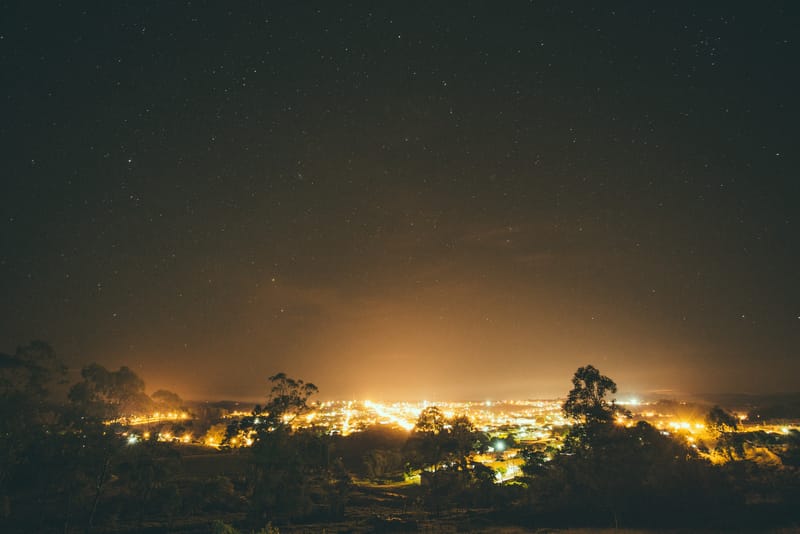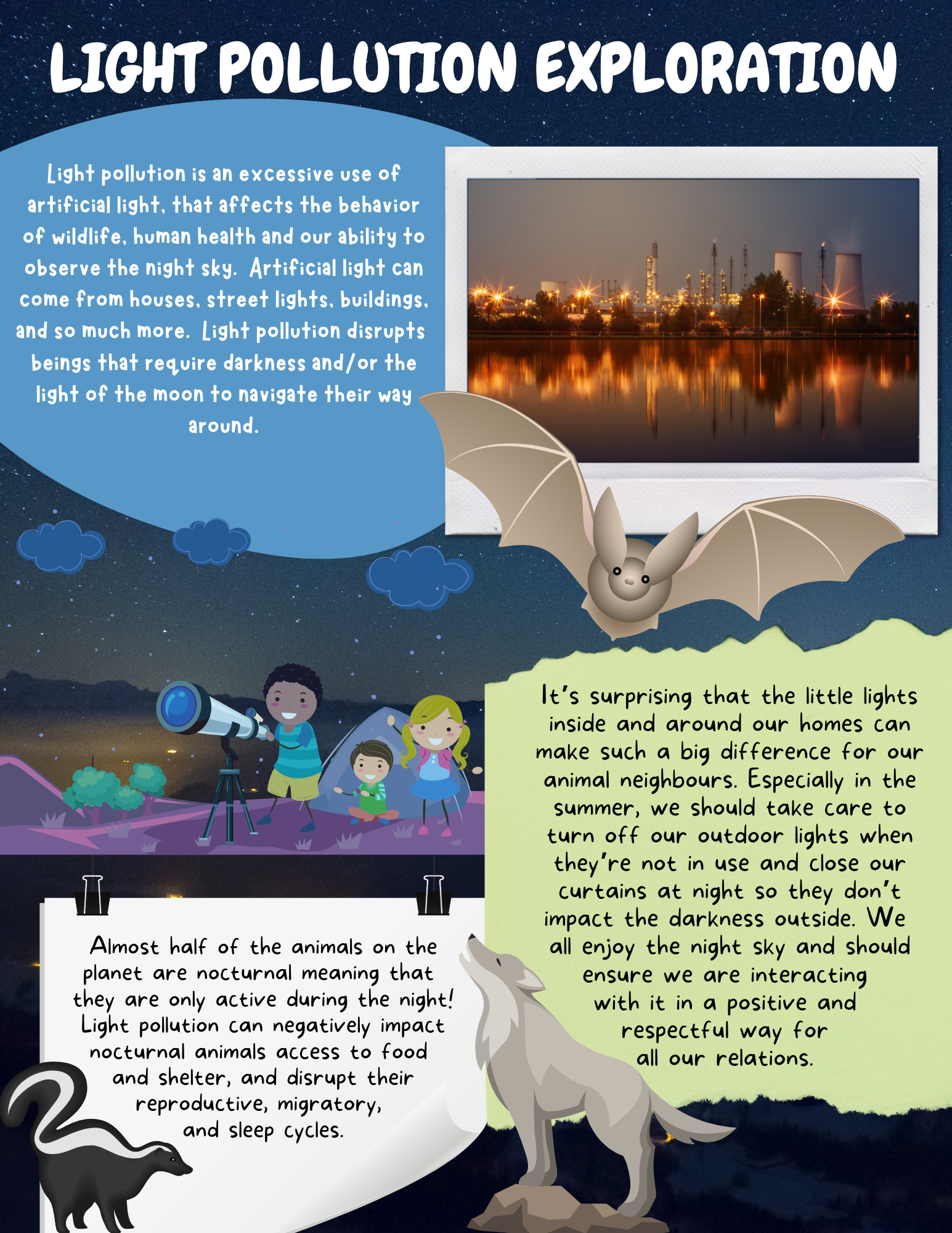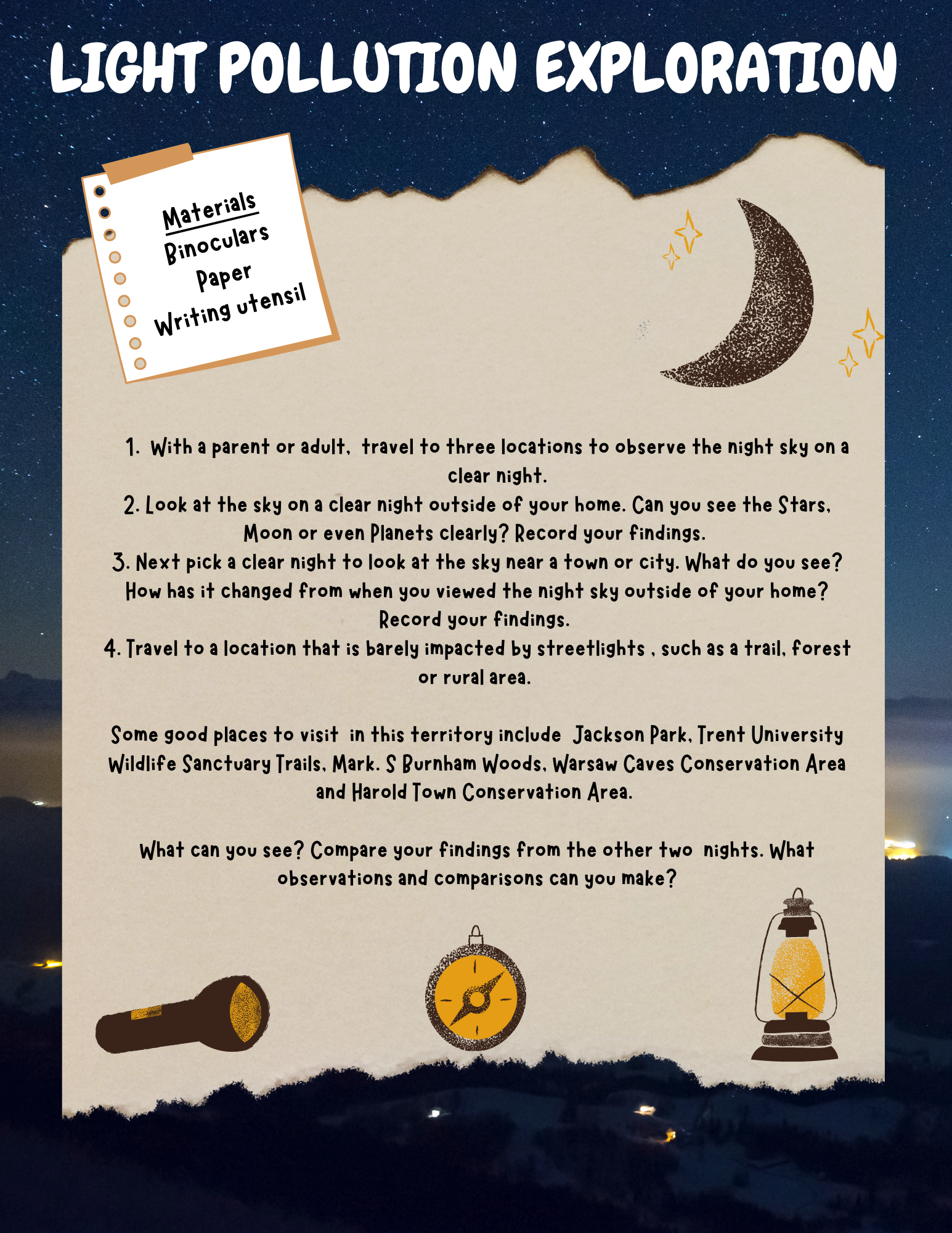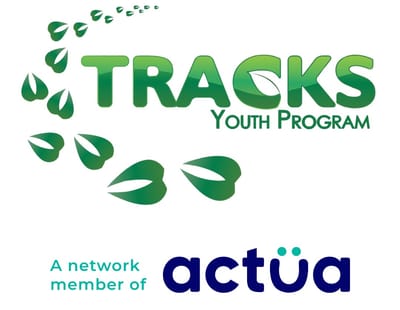Astronomy Activity #4: Light Pollution Exploration

Light pollution is an excessive use of artificial light that affects the behavior of wildlife, human health and our ability to observe the night sky. Artificial light can come from houses, street lights, buildings, and so much more. Light pollution disrupts beings that require darkness and/or the light of the moon to navigate their way around.
It’s surprising that the little lights inside and around our homes can make such a big difference for our animal neighbours. Especially in the summer, we should take care to turn off our outdoor lights when they’re not in use and close our curtains at night so they don’t impact the darkness outside. We all enjoy the night sky and should ensure we are interacting with it in a positive and respectful way for all our relations.
Almost half of the animals on the planet are nocturnal meaning that they are only active during the night! Light pollution can negatively impact nocturnal animals access to food and shelter, and disrupt their reproductive, migratory, and sleep cycles.

Light Pollution Exploration:
Materials: Writing utensils, paper or notebook, binoculars are helpful but not necessary
With a parent or adult, travel to three locations to observe the night sky on a clear night.
Look at the sky on a clear night outside of your home. Can you see the Stars, Moon or even Planets clearly? Record your findings.
Next pick a clear night to look at the sky near a town or city. What do you see? How has it changed from when you viewed the night sky outside of your home? Record your findings.
Travel to a location that is barely impacted by streetlights , such as a trail, forest or rural area.
Some good places to visit in this territory include Jackson Park, Trent University Wildlife Sanctuary Trails, Mark. S Burnham Woods, Warsaw Caves Conservation Area and Harold Town Conservation Area.
What can you see? Compare your findings from the other two nights. What observations and comparisons can you make?

If you are interested in downloading these graphics, here is link to the PDF file!
Giizhigoong Activity Series Light pollution.pdf
The Giizhigoong program is supported through a memorial fund set up by the family of Adam Evans. We are proud to support the legacy of science education in the field of Astronomy made possible through this funding. Miigwech!
